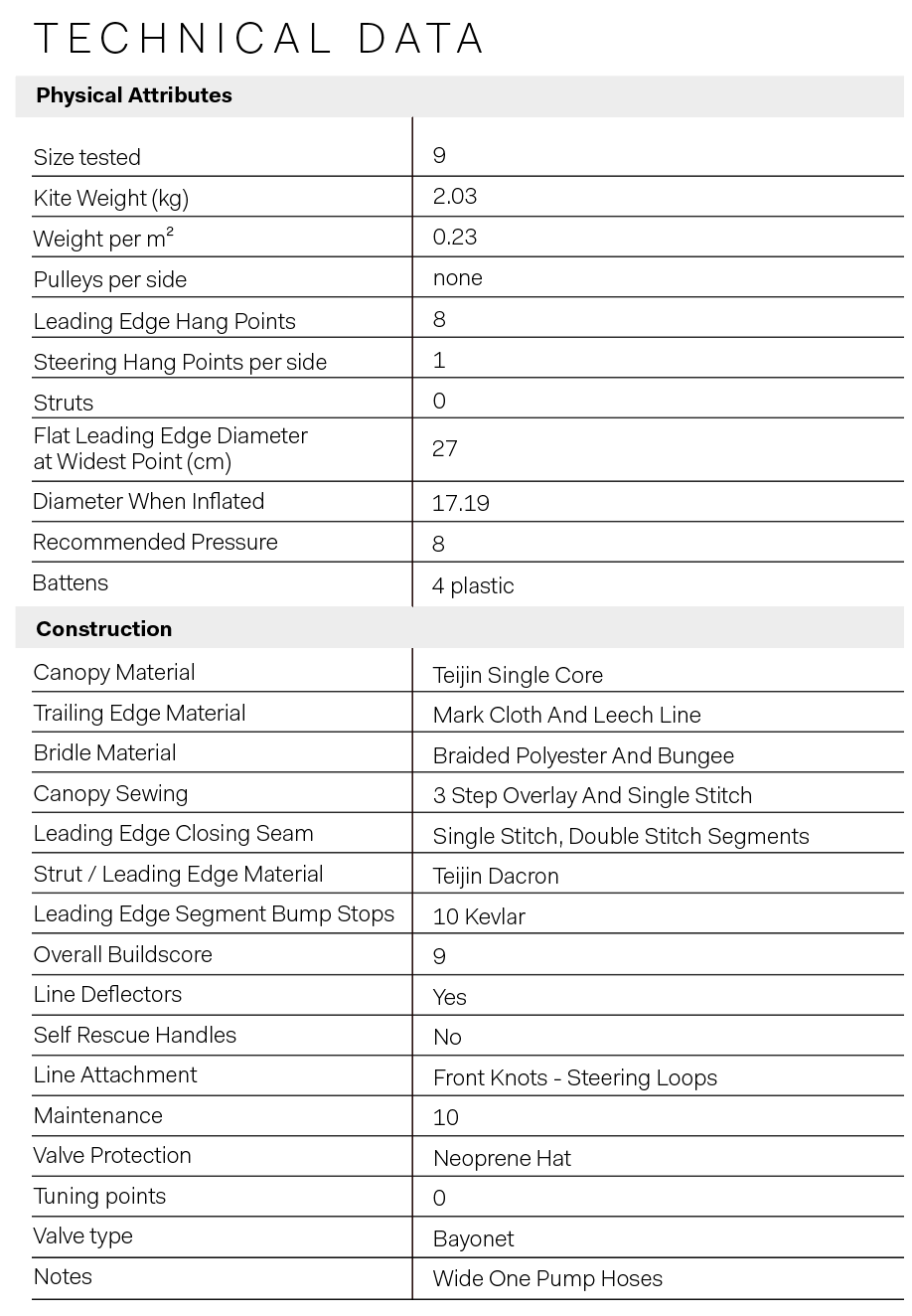When you purchase gear through links on our site, we may earn a small commission. Here’s why you can trust our tests and our affiliate partner.
It is no secret Tony Logosz is a man that loves foiling, and last year Slingshot released their first single-strut foiling-specific kite in the form of the Ghost, to complement their huge range of kite foils. The UFO builds (or rather reduces) from that platform, losing the middle strut to become completely strutless. It is available in four sizes ranging from a tiny 3m to a 9m. The UFO feels completely designed around freeride foiling, developed with Fred Hope, whose freakishly high skill level is pushing boundaries.
Build-wise, weight loss has clearly been a high priority in the design process. We seem to see that across all manufacturers currently, but the UFO is very much on the extreme end of the spectrum. Single-core D1 Teijin ripstop is utilized for maximum weight saving. The only Dacron present other than the front tube is a tiny quadrant on the steering hang points. These are placed right at the back of the wingtip to spread decent leech tension into the back of the sail, and maximize turning speed. The elasticated IRS bridle carries over from other models, and removes slack from the lines, improving the kite’s overall response. The pack-down size is tiny, perhaps a third of the size of an average three strut kite, making it a serious option for traveling. As you would expect it is light, very light in fact at 2.02kg.. In the air, the first thing you notice is the lack of flapping, which is the usual Achilles heel of this design. The canopy looks very well-tailored, and tension seems maintained in all positions. It is a work of ripstop art, and provides a clean riding experience. Turning is very snappy and pivotal, and you can feel that IRS bridle bungee evening things out and keeping power delivery smooth and progressive as the kite shoots across the window. When it comes to early starting, the grunty low-aspect shape and fast turning speed pops you up onto the foil immediately. That pleasant power on demand seems to time well with when you most need it as you lay down tacks and transitions. Other kites in this sector will fly out across the window and drop you off the foil. The UFO likes to sit high in the window in lighter airs and hangs in the sky like an obedient hawk.
The slimline build gives the wing shape an unearthly efficiency which affects two factors noticeably. Firstly, the upwind ability for a low-aspect design is surprisingly good – the leading edge diameter isn’t huge, and secondly the wind range is definitely extended at both the low and top end. When drifting the kite upwards for a foot swap, the weightless point is predictable and extended, giving you more time and a better success rate, making it ideal for the intermediate hydrofoiler.
Relaunch can often be the worry with a strutless kite, but there is very little suction on the leading edge as the center section isn’t in contact with the water when nose down. In some scenarios it is marginally more technical to relaunch than a strutted kite, but certainly nothing that should dissuade you.
There is really not much to dislike about the UFO. Some people are going to be quizzical and perhaps scratch their heads about a 9m being the largest available, but the evidence is compelling. The 9m got us going in sub ten knots at 90kgs with a 1000cm2 freeride hydrofoil, and what is more it was both an entertaining and a reliable experience. Although small in weight and stature, the UFO is without doubt a formidable player, and enhances the whole experience of freeride foiling over a strutted kite – I daresay it could be a ‘gamechanger’.
